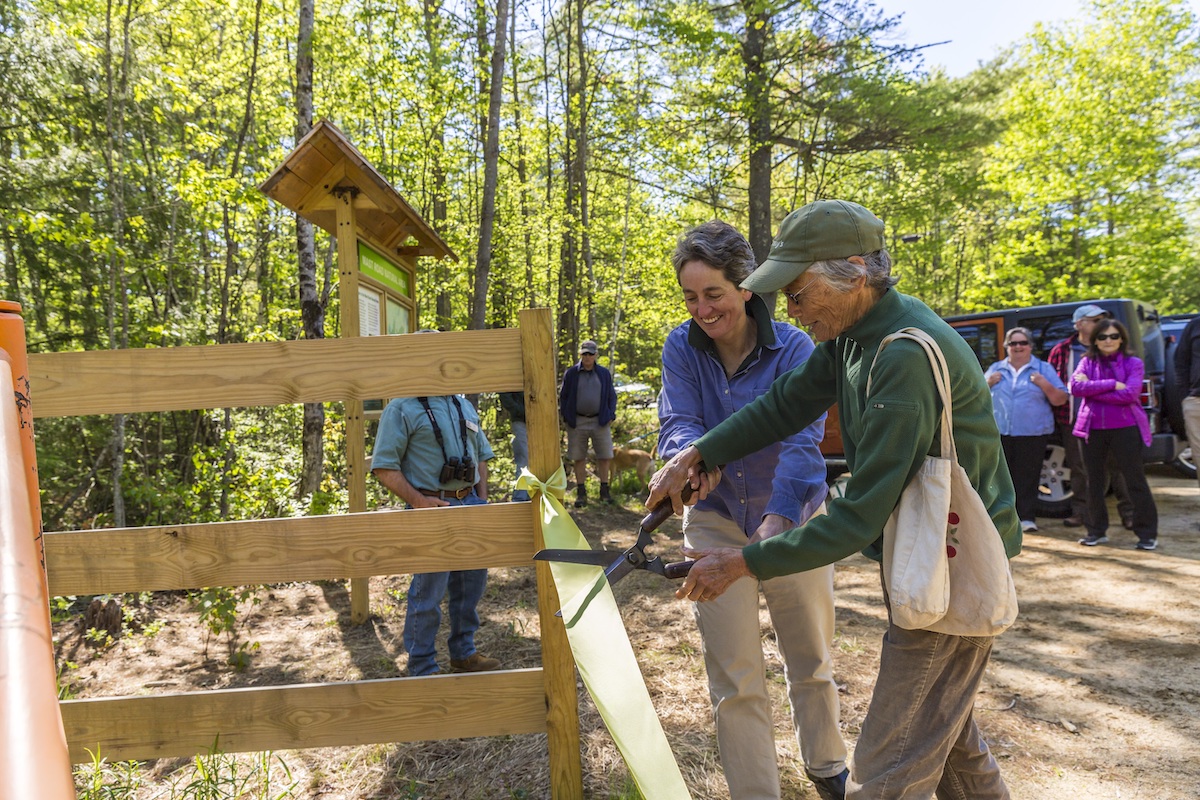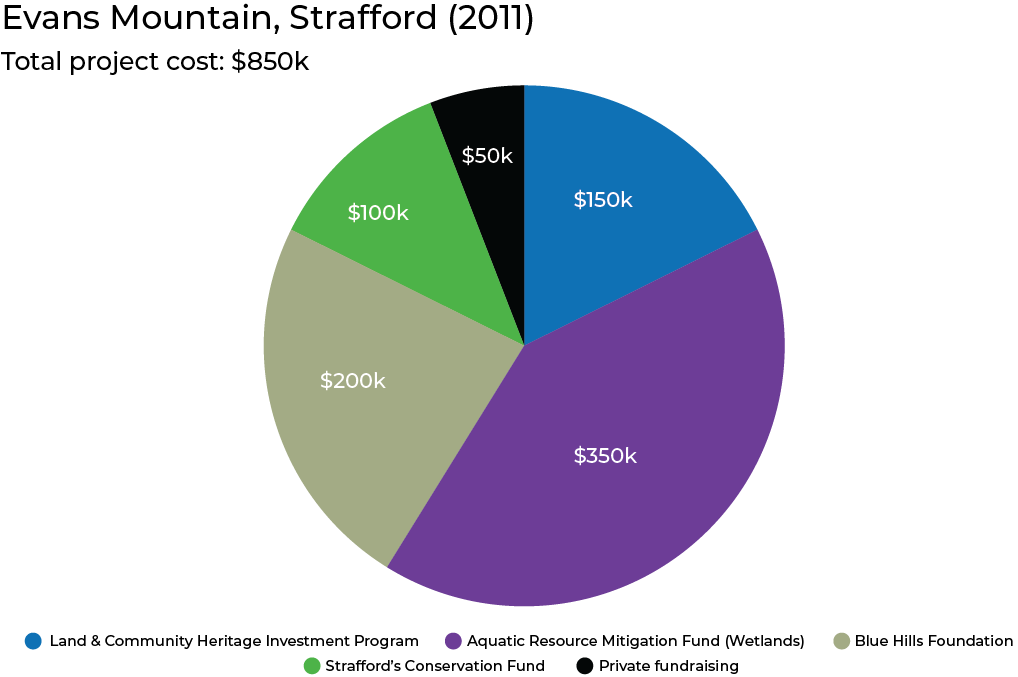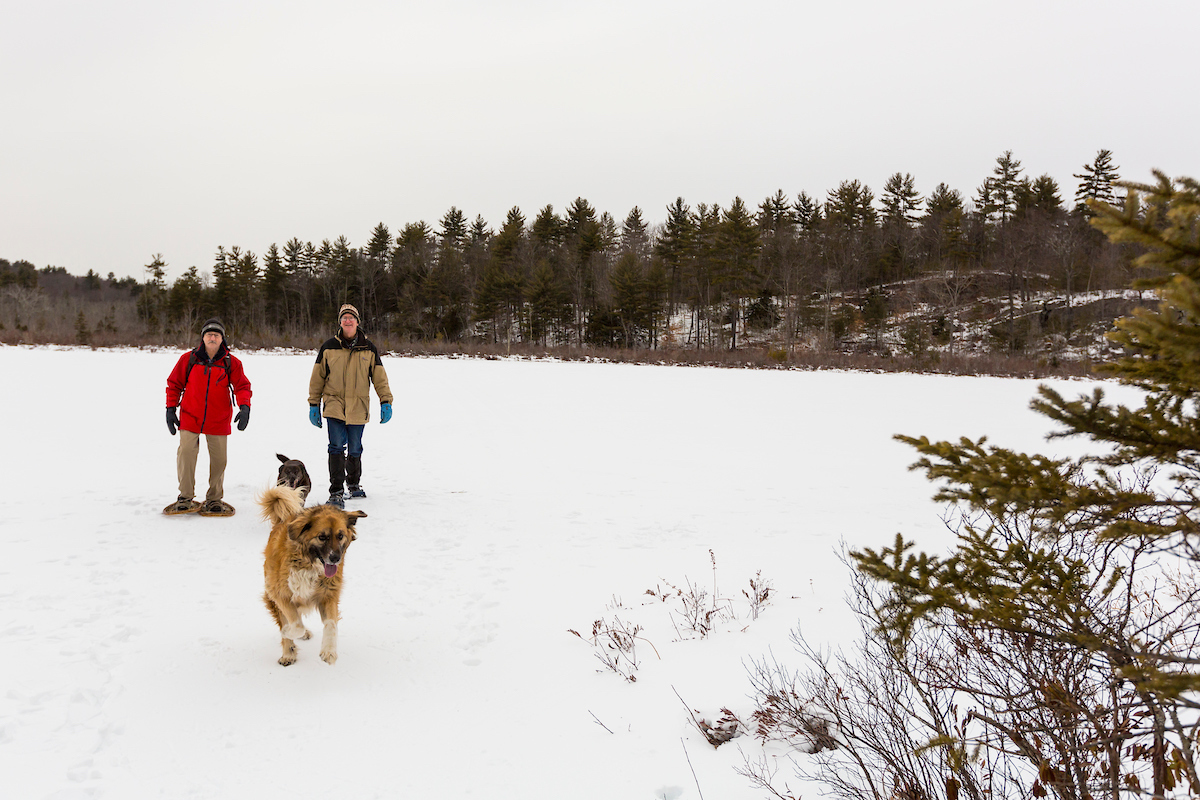Find Support
Photo by Walter Jalbert
Feeling overwhelmed? It's understandable. Conservation is a complex, challenging endeavor that not only requires funding and collaboration, it also often calls for community buy-in and political will. It also doesn't happen overnight and requires patient persistence. Fortunately you are not alone. There are many organizations and funding programs that can help you protect the valuable conservation lands in your community. Together, we can do this!
New to Conservation in the Coastal Watershed?
Start here:
- 2-page factsheet about the NH Coastal Watershed Conservation Plan [link]
- 20-minute recorded presentation about the Plan [link]
- Review the Plan [link]
- Find your map or make your own [link]
- Instructions for finding and using the data layers on the NH Coastal Viewer [link]
- Questions? Email info@connect-protect.org


The Evans Mountain Conservation Project in Strafford pulled together funding from a variety of sources to make up the total project cost of $850,000 and purchase a conservation easement. The Evans Mountain project is held in easement by Bear-Paw.
Finding Funding
New Hampshire’s Coastal Watershed Conservation Plan’s goal of protecting 4,000 acres of land every year will require an estimated $15 million per year. This makes working with all types of funding essential to protecting our watershed’s most valuable lands.
Communities often collaborate with local and regional land trusts when seeking funding, and multiple funding sources are typically needed for each project. Typically, a mix of federal and/or state programs, private foundations, private fundraising (local donors), municipal funds, landowner contributions, and other sources contribute to conservation costs.
- Municipal funds: Municipalities have different funding mechanisms to support conservation. These may include municipal conservation funds (often generated through land use change taxes), conservation bonds, town forest income, dedicated line items in the municipal budget, appropriations for specific projects, surplus funds, and capital reserve funds. Some of these may require town meeting votes or approval by a select board or other municipal bodies.
- Private foundations: Many provide funds for land protection projects, usually available by invitation only. Available funds and priorities may change from year to year, so it is best to check with your local or regional land trust or other conservation groups to learn which foundations may be best suited for your project.
- Other private funding sources: Funds for land conservation may be raised via local donors who are interested in supporting conservation projects, as well as fundraising events.
Conservation Assistance
You are not expected to do all this work on your own! Connecting and collaborating with other groups can strengthen and support conservation work. There are many conservation organizations working in the Maine and New Hampshire parts of the coastal watershed that can provide support and assistance.

Photo by Jerry Monkman, courtesy of Southeast Land Trust of New Hampshire
